
What are the policy views of young independents?
Introduction
In part 2 of our young independent voter report, we're diving into the issues. Young, independent voters have a unique perspective on the political world. They're much more progressive than the media lets on and highly animated by economic issues. We wanted to know what these young voters care about. We also wanted to learn where they're monolithic and where they're not. So let's dive into our report on the issues facing the segment of independent voters that are growing the fastest -- Americans aged 18-35.
Details about our survey
We wanted to understand what young independents thought about the issues that matter most in politics today. We conducted this survey online using usertesting.com, which means that our targeted audience skews much more urban progressive than the general population of young people. To identify the right people for this audience, we asked respondents if they were reluctant republicans, reluctant democrats, or independents (or third-party). Ultimately, we gathered 526 responses from all over the country. All respondents were located in the US and aged 18-35 years old-- falling into the standard definition of millennial and gen-z.
Respondents were asked about their political beliefs on key issues facing the country on a 1-7 scale from strongly disagree to strongly agree. The 526 respondents also answered questions about their age group's involvement with politics; whether they would consider running for office themselves (over 50 said they would!); how likely they'd be to vote as well as other demographic details like gender, income, and more.
Young independents were highly likely to support campaign finance reforms and limiting the influence of corporations in politics.
We asked the survey respondents this question: There should be limits to how much money businesses can spend on elections and political campaigns. (1 strongly disagree, 7 strongly agree). The average position was 5.8, median 6, and mode 7 (261/526) with a standard deviation of 1.55. This means young independents are highly likely to support campaign finance reform and limiting the influence of corporations in politics. Independent candidates take note: democracy reform is important to young voters who see the political game as rigged against them.
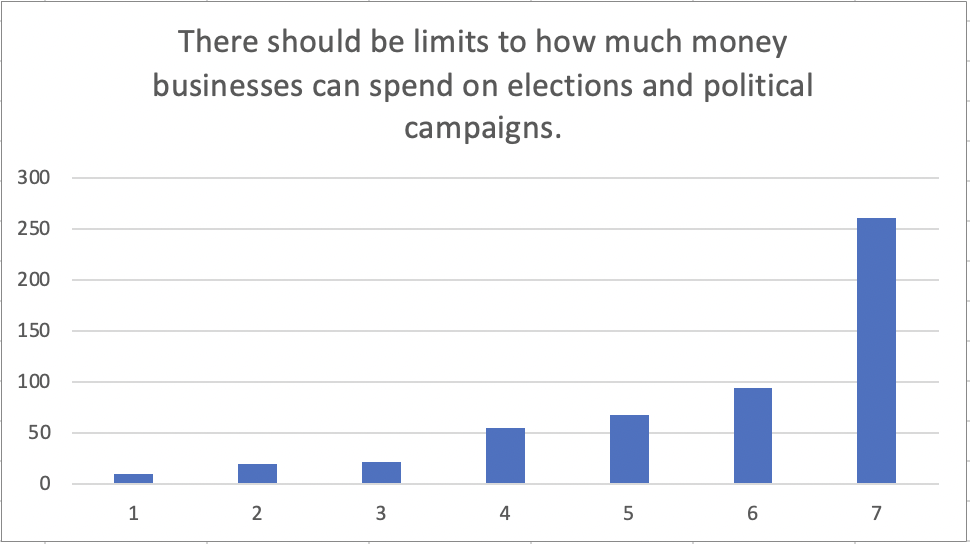
An overwhelming majority of young independents support increase government regulation on businesses contributing to climate change.
We asked respondents: Do you favor, oppose, or neither favor nor oppose increased government regulation on businesses that produce a great deal of greenhouse emissions linked to climate change?
The response reflects the very important place of climate change among young voters. 363 out of 526 say they would favor such a policy and only 66 disapproving.
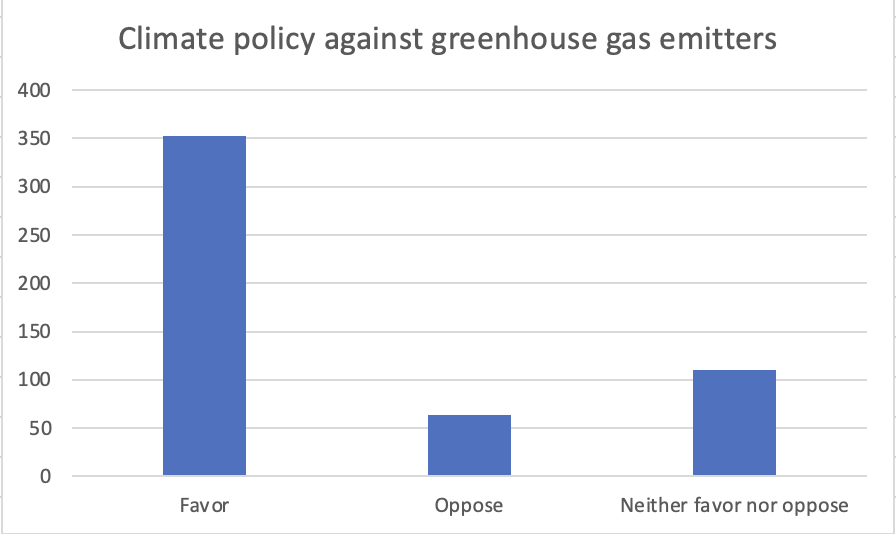
Young independents were universally in favor of the government guaranteeing healthcare as a fundamental right.
We asked the survey respondents this question: Access to healthcare is a fundamental right, one that the government should guarantee for all Americans.
The results show that young independents highly support government intervention in healthcare markets when it comes to ensuring everyone gets access to quality care at an affordable price -- or for free. Therefore, when talking to young independents, it's important to have strong policy answers for how a candidate might deliver change regarding healthcare.
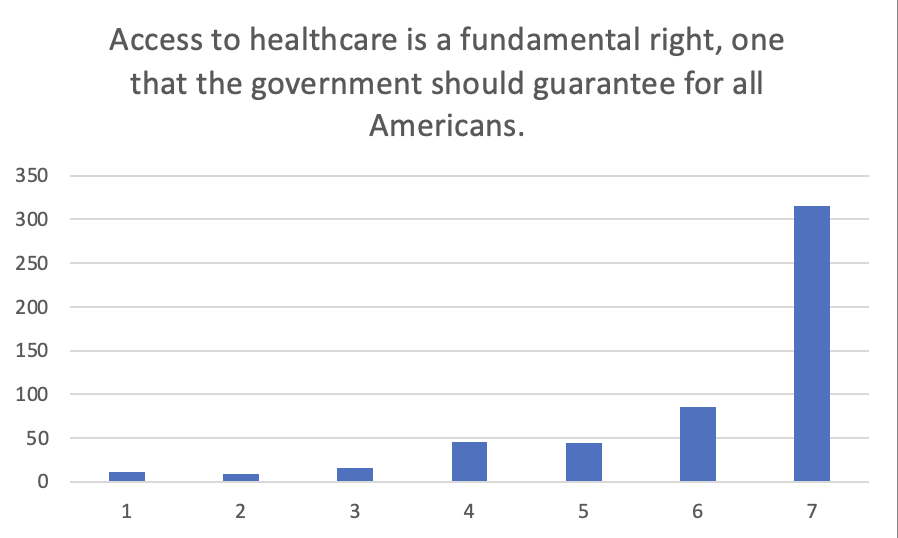
Young independents were the most divided on crime and police funding.
The statistics revealed a broad range of opinions on this issue; the mean response was 3.87, with a median of 4 and a mode of 4 (116 out of 526 respondents). The considerable standard deviation and close-to-average position suggest that Gen Z and Millennial political independents exhibit a significant divide in their perspectives on addressing violent crime. This comes in the wake of the 2020 George Floyd protests and resulting defund movements that have resulted in a wide variety of opinions. There could be an opportunity for new independent candidates to attempt to find common ground on this issues.
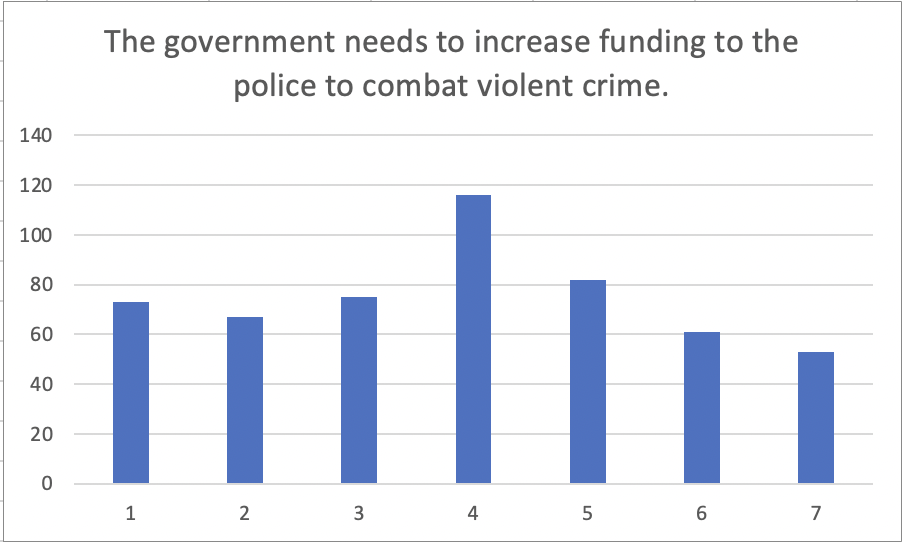
Young independents were in more in favor than not of using the government to address income inequality.
In our survey, we asked respondents to rate the statement "The government should intervene to resolve the gap between the rich and the poor." The average response was 5.03, with a median of 5 and mode of 7 (148/526). This high standard deviation again shows quite a bit of division among young independents. The mode as 7 also indicates a highly animated socialist tendency in this group; however, there were more neutral responses than extreme ones overall.
Young independents were also more likely than not to support other policies aimed at reducing income inequality.
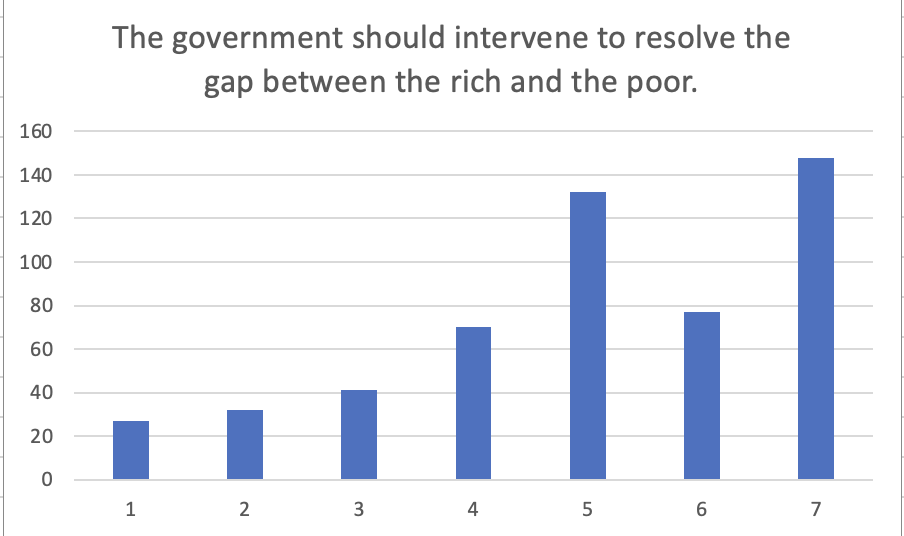
Young, independent voters were more moderate in their worries about democratic institutions and about gun control.
Two further questions resulted in a more moderate and polarized response from the audience: "There should be more restrictions on guns in the US" and "The future of democracy is in danger."
Contrary to popular belief, young independent voters displayed more moderate views regarding both concerns about democratic institutions and gun control. For the question on gun control, the mean response was 5.17, with a median of 6, and a mode of 7 (205 out of 526 respondents), and a standard deviation of 1.94. This question proved to be the most polarizing among independents, with a notable portion leaning moderate while others were either strongly in favor of or against gun restrictions (with the largest group being the latter).
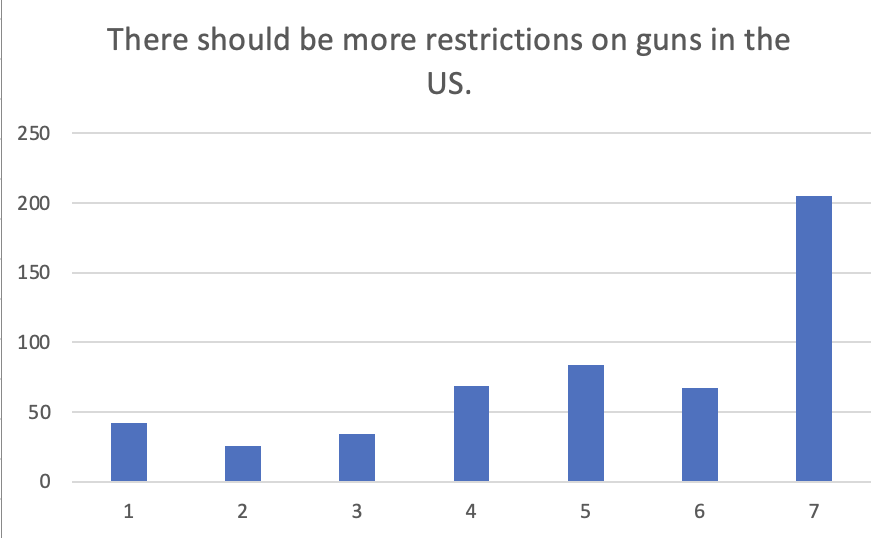
Regarding the future of democracy, the average response was 5.12, with a median of 5, and a mode of 5, while 205 respondents answered this question (SD=1). These results indicate that Gen Z and Millennial political independents are indeed concerned about the state of democratic institutions, but the level of urgency surrounding this issue is less compared to other matters discussed in the survey.
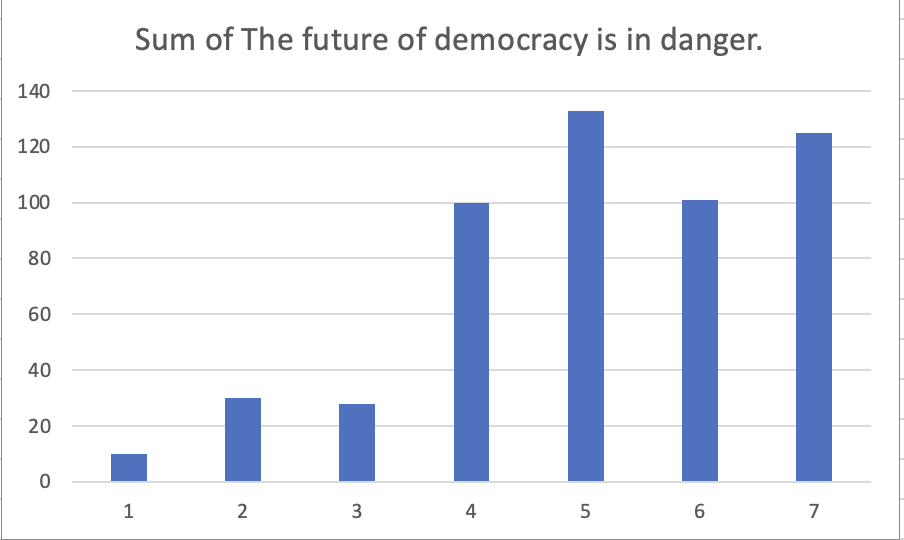
Millennials and Gen-Z independents identified as more pro-choice than pro-life.
For the question: "Would you consider yourself to be more pro-life or pro-choice?"
The mean response stood at 5.38, with a median of 6 and a mode of 7 (226 out of 526 respondents), accompanied by a standard deviation of 1.89. This data suggests that a considerable number of respondents had strong opinions either leaning towards pro-life or pro-choice, but many more identified as very pro-choice. Such a diverse range of passionate stances on this issue could be indicative of a promising future for our nation, with engaged citizens holding well-defined beliefs.
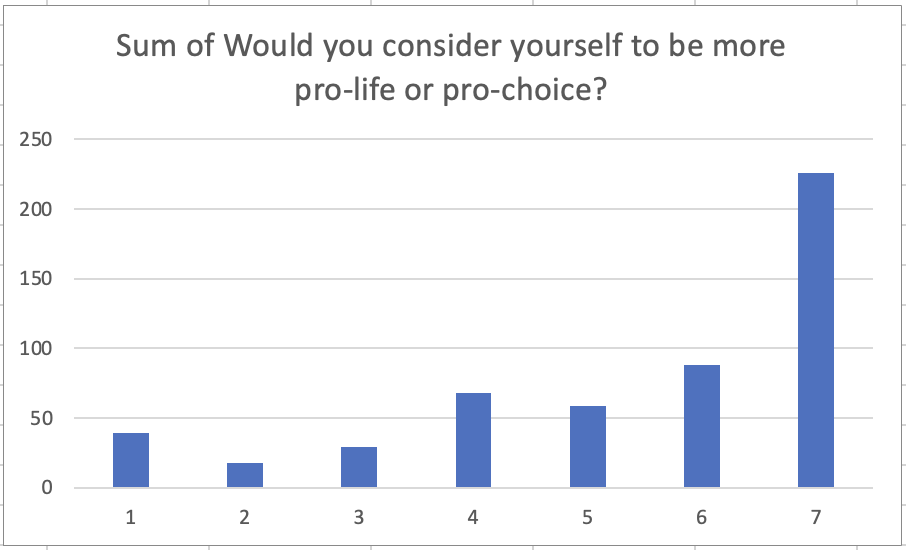
Conclusion
Our study makes the case that young independents, like young voters generally, tend to be generally progressive on some of the key issues facing our country. However, they are not a progressive monolith. Issues like gun control, worries about the status of our democratic institutions, and crime and police funding divide young independents. More research is needed, but our hope is candidates will see this group of frustrated young people that identify outside of the two-party system and build platforms to meet the will of the people.

